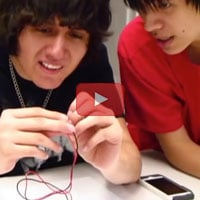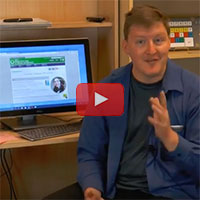Preparing for Postsecondary Education
Youth with disabilities are entering postsecondary education in increasing numbers and finding great success. For many, the key to that success is using high school classes, career exploration and campus tours to prepare for what is expected out of a college student.
Videos

Mapping Your Future: Creating a Personal Transition Plan

I Am Thinking College (Even with My Disability)

College Bound with Assistive Technology
For more videos on this topic, visit our Videos page.
Did you find this helpful?
PACER Resources
- Transition to Postsecondary Education or Training: What Parents Can Do Now
- Planning for Success in Postsecondary Education Takes Time and Organization
- Documents to Keep for Youth Transitioning to Adult Life
- The Gap Year: Taking a Year Off After Graduating From High School
- How Can My Child be Involved in the IEP Process?
- High Expectations: A Most Valuable Tool
- How You Can Help Your Child Learn to be a Good Self-Advocate
- Start Now to Chart Your Youth’s Career Path After Graduation
- Visiting College and University Campuses
- Extracurricular Activities and Students with Disabilities
- Your IEP Meeting: A Great Place to Practice Self-Advocacy Skills
National Resources
- College Navigator
A free consumer information tool designed to help students, parents, and others get information on nearly 7,000 postsecondary institutions in the United States. - Healthy and Ready for College!
This Think College brief can help families and youth discuss the need for youth to take greater responsibility for managing and making decisions about their healthcare when they are in college, and prepare for that transition. - Preparing for College: An Online Tutorial
From the DO-IT Program at the University of Washington - Self-Determination: Supporting Successful Transition
A brief from the National Center on Secondary Education and Transition. - Self Determination for Post-Secondary Students
National Center on Secondary Education and Transition.

